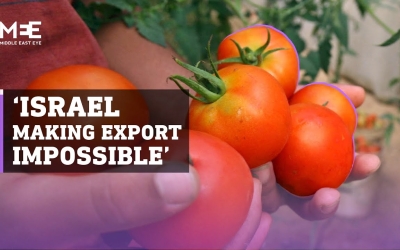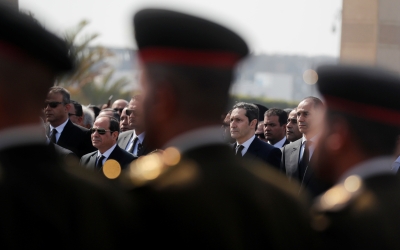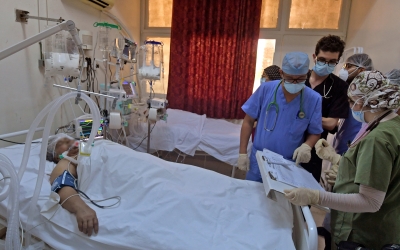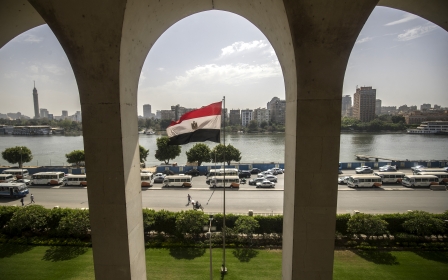Arabic press review: Palestinian Authority blocks entry of aid to Gaza
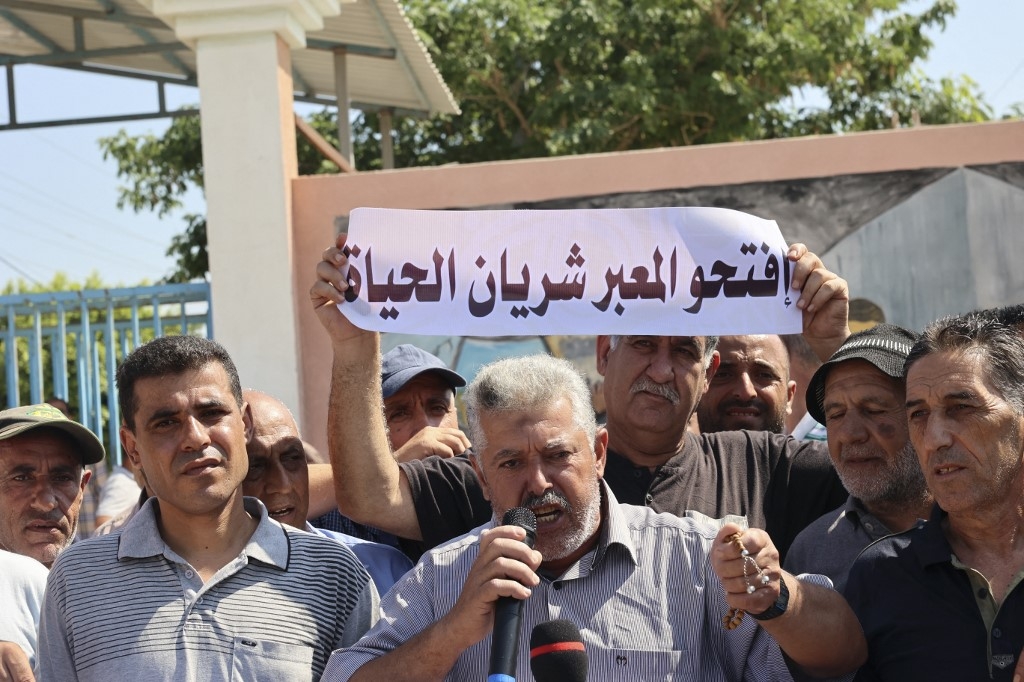
Palestinian Authority blocks Qatari aid to Gaza
The Palestinian Authority (PA) in Ramallah has rejected a plan submitted by all parties to deliver a Qatari grant to the besieged Gaza Strip, Arabi21 quoted Palestinian sources as saying on Tuesday.
The sources confirmed that the PA rejected an Egyptian-mediated agreement between Hamas and Israel, as part of efforts to end the stifling humanitarian crisis in Gaza.
Sources familiar with the indirect negotiations taking place in Cairo between Hamas and Israel said that "a new mechanism was presented, according to which the Qatari grant would be transferred through the United Nations to be handed directly to poor families in the Gaza Strip," which was rejected by the PA after Israel approved it.
The sources pointed out that "Israel agreed to this method, the United Nations is willing to implement it, and there is approval from the United States, but the Palestinian Authority in Ramallah rejected this mechanism, which has hindered the entry of these funds so far".
The sources added, "The Palestinian Authority is clearly indifferent about the difficult humanitarian conditions that the besieged Gaza Strip is going through, in light of the approaching celebration of the blessed Eid al-Adha occasion."
Gaza has seen a deterioration in its humanitarian, economic and living conditions for 15 years, due to the ongoing severe blockade imposed by Israel and the closure of crossings and the prevention of entry of basic necessities, which have driven up poverty and unemployment rates. There have also been persistent power outages.
Egypt lifts ban on Mubarak assets
On Thursday, Egyptian authorities lifted the ban on the family of ousted President Hosni Mubarak from managing the family assets, after more than 10 years of restrictions, Masrawy website reported.
Public Prosecutor Hamada al-Sawy agreed to end the ban on the funds of Alaa and Gamal Mubarak, their wives Heidi Rasekh and Khadija Mahmoud al-Gammal, and all of their children.
Masrawy website and other Egyptian media did not reveal the value of the seized assets.
The decision to seize the Mubarak family's assets was prompted by concerns about their "manipulating the stock exchange” - Mubarak's sons were accused of illegally obtaining 2.5 billion Egyptian pounds ($130m).
In February 2020 the Cairo Criminal Court acquitted Mubarak's sons, along with seven other defendants, in a case that had been ongoing for over eight years.
Surging prices hit the poor in Tunisia
The unprecedented surge in prices in Tunisia has become a serious threat to the poor and other vulnerable groups, after dramatic increases in the costs of many basic items, Al-Araby al-Jadeed newspaper reported.
The latest government statistics showed that food prices rose by 7.2 percent in June, while vegetable prices increased by 13 percent, the price of vegetable oils by 16.5 percent, and milk and dairy products by 8 percent.
The consumption rate of lamb and beef per capita has fallen from 15kg per year, 10 years ago, to less than 6kg per year at present, in a clear indication of the decline in the purchasing power of the Tunisian population.
Khamisa Saidia, 62, a low-income earner who receives government assistance estimated at 180 dinars ($65) a month, told the newspaper that the poor in Tunisia are facing hunger because of rising costs.
Saidia said that the government financial aid she gets is barely enough to provide necessities for two weeks a month, so her entire family needs to work in collecting plastic bottles to meet their food and rent expenses for the rest of the month.
Data issued by the National Observatory of Agriculture reveal that the spikes in vegetable prices exceeded 50 percent in some varieties during the month of June.
Gulf countries - a unified electronic currency?
Cryptocurrencies have become one of the unconventional tools that attract Gulf capital, and have emerged as a strong competitor to other sectors that are considered a safe haven in times of crisis, such as gold and real estate, reported the Al-Khaleej Online website.
The Gulf Cooperation Council (GCC) said in a statement published on its website that a specialised workshop was held recently to discuss a joint digital currency project being worked on by Saudi Arabia and the UAE.
The statement pointed out that the project aims to study the possibility and prove the feasibility of using distributed ledger technologies in order to develop cross-border payment systems between the two countries.
The statement indicated that this can be made possible via a new digital currency issued bilaterally as a settlement unit for the local operations of commercial banks in both countries, and cross-border transactions.
Arabic Press Review is a digest of reports not independently verified by Middle East Eye
Middle East Eye delivers independent and unrivalled coverage and analysis of the Middle East, North Africa and beyond. To learn more about republishing this content and the associated fees, please fill out this form. More about MEE can be found here.


